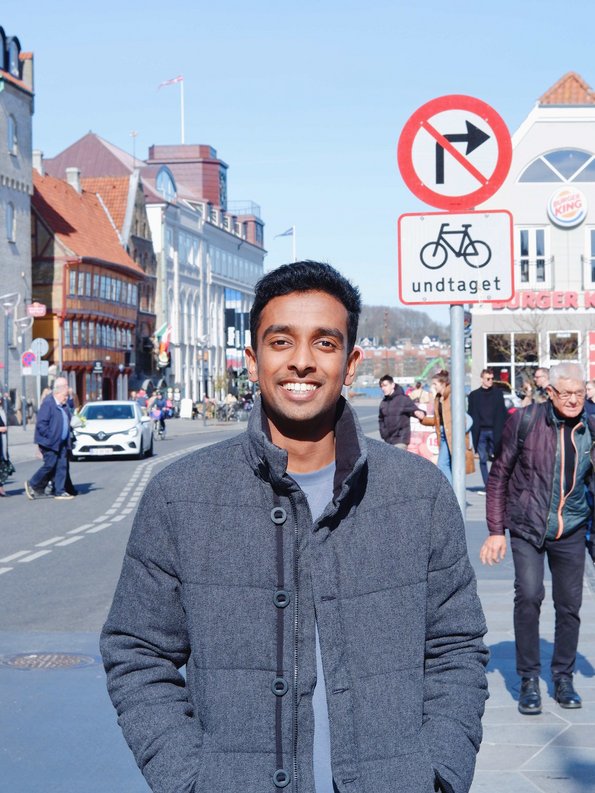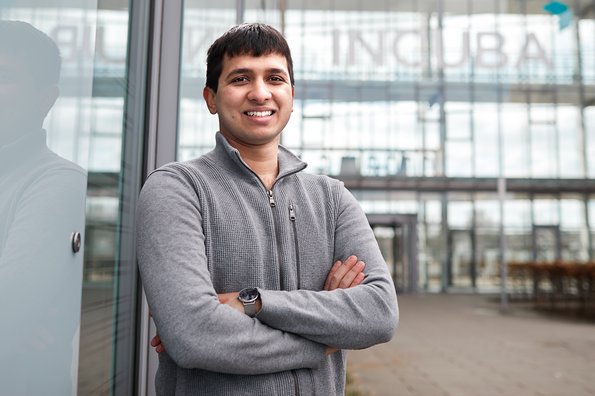Life after AU: How long does it take to get a job?
Four Indian alumni answer the most frequently asked questions about the odds of finding a job after graduating from Aarhus University in Denmark.

If there’s one question that is the most popular about pursuing a Master’s, it is: Will I get a job after I graduate? What does it take to be successful in the job search? Many of us here at AU have been in the exact same position. Choosing to invest in an educational degree abroad is a big ticket expense and wanting to know the return on this investment is an obvious concern.
There is no short and sweet answer to career concerns. There are just different experiences and what people made of the opportunities that came their way. But in order to present a fuller picture, we reached out to four students who graduated from AU in the last five years to see where they are in life and what they are up to.
No two stories were the same. But spoiler alert: Everything worked out fine in the end and each of them are satisfied with their journey!
Meet the Indian alumni:




Q 1. How long did it take you to land your current job?
Chahat Gupta (CG): I started looking for job during my thesis. I got my job before I finished my degree because I had already signed the contract the day before my thesis defence.
Anitha Guru (AG): I started looking for a job during my last semester. After different rounds of interviews (one on the last day of my exam!) I got selected for my current role. It took about four months in total.
Rojin Gomez (RG): I started working three months after graduation. But I had been applying for jobs from the start of the fourth semester, so approximately six months before graduation.
Vidur Singh (VS): It took me a couple of months. There were quite a few companies that ghosted or rejected me, and even the ones from whom I got a positive response had long hiring processes
Q2: How did you come across the job opening?
CG:I applied for a few jobs after having a discussion with the company executives at the university event called 'Kdag' in May. I also applied for some jobs through Linkedin. I started getting calls for the job interview two months before the end of my degree.
RG: I found the job through LinkedIn. One of the many reasons I was hired was to do with my thesis, which was an industrial collaboration that was funded by EUDP (Energy Technology Development and Demonstration Program). It was part of a three-year long project that was aimed at optimising heat pumps. My current job is also in research and development of heat pumps. So it was a direct match in terms of job profile and my expertise.
VS: A few months before graduating, I discovered the concept of ‘graduate programs’, which are quite popular in Europe. New graduates join a company, in a broad role, and then 'rotate' around different divisions to understand the company better, and potentially what they would like to be doing long term. The idea appealed to me, and applications for these kinds of jobs usually open very early on. Since I wanted the peace of mind of having a job before graduating, I started applying to various companies for their graduate programs, of which Airbus was one.
Q3. What learnings from your course can you apply at your job?
CG: The good thing about a degree in Computer Science is that it can be applied to many industries since it helps develop your mindset and how you approach problems. Any company that produces data could benefit from someone with a Computer Science degree.
AG: The study environment was rewarding in so many ways. I was surrounded by peers from different nationalities and was exposed to varied perspectives. If I had studied the same course in India, I do not think I would have been so sensitive to where the other person comes from. Today, that skill is helpful since I work in an international organisation.
RG: Aarhus University does a lot of research in the field of renewables. This gave me insight into methods and techniques that can be leveraged in the industrial space as well to gain an advantage in the market.
VS: One of my most valuable experiences from AU was doing several projects, including my thesis, with the Data Visualisation department. I did not know too much about this field initially, so the projects often involved a lot of research, getting used to new tools, [coding] languages, and concepts. I find the skills I developed during this time have helped me a lot with the new job where, just like with the projects, there is a lot of new information, and new skills that I am required to learn relatively quickly.
Q4. What are your thoughts on job prospects after graduating from AU?
AG: Some study programmes do have an advantage over others. My friends who studied Computer Science or Engineering have all got jobs. But some of my classmates who also studied Intercultural Studies are still looking. On a more positive front, Denmark grants students a three-year work seeking permit. So there is time to keep searching for a good job.
RG: Denmark is at the forefront of innovation when it comes to mechanical engineering. I can state a few great examples such as Vestas, Grundfos, Danfoss, Linak, etc. which are renowned worldwide!
VS: For Computer Science, the job market in Denmark is quite optimistic. It requires effort, dedication, and patience to apply and follow up, but the job market is healthy, and there are a lot of opportunities.
Q5. What advice would you give to someone who is curious about the scope of job prospects after AU?
CG: If there is a company you are interested in working for, try to understand their values. From what I have experienced, Danish companies look for candidates who can fit well in the role they are applying for. For example, my company values passion, so when they realised I was not just interested, but passionate, about data and producing results from it, it helped me gain some plus points in my application.
AG: All the interactions I had - with my professors, classmates, dorm mates and at my part-time job - improved my communication skills. Going forward, we will be working in multicultural environments. You will be surrounded by an amazing international environment and get access to some great resources, libraries, lecturers and seminars. So, if you make the best use of all of this, you won’t have to worry too much about job prospects!
VS: Attending career fairs at the university is a great way to network and find companies that are looking to hire. Landing a student job is also often another way to secure a full-time job after graduating.
Editor's Note:
Aarhus University doesn't help students excel only in their classrooms. Preparing students for the professional world is also important, which is why the university offers comprehensive career services for all international students!
The offerings can help you prepare for finding work in Denmark in multiple ways. Besides networking events and job fairs, there are also workshops or sessions on writing an effective cover letter or effective ways of using LinkedIn to find a job in Denmark.
To get in touch with the Career Service Centre at your faculty, click here.
